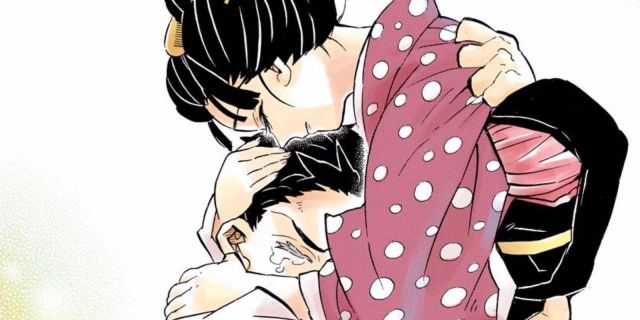Shonen manga are easily the most popular demographic within the industry, and the same goes for these books’ anime adaptations. From the likes of classics such as Dragon Ball Z to newer titles like My Hero Academia, these manga in many ways dominate the conversation surrounding the entire medium. Strangely enough, many of the biggest examples of this aren’t riding their success to excessive length, instead doing the opposite.
Today’s shonen manga aren’t lasting nearly as long as many of their popular predecessors, and this is despite their own massive success. It’s an interesting trend that arguably reflects the harsh reality of the manga industry, thus seeing some mangaka get out while the getting is good. Here’s a look at this trend in manga and what it says about where shonen as a demographic “genre” is going.
Some of the Most Popular Shonen Manga Franchises Have Been Running for Years
As mentioned, 706z87″ title=”akira”>Akira Toriyama’s Dragon Ball series has been going on for decades at this point, with the original manga getting its start in the 1980s. For many Western anime and manga fans, it’s synonymous with both mediums and continues to go strong in its current form, Dragon Ball Super. This is despite Toriyama’s many attempts to end the series or at least move it in a new direction via a new main character, with the popularity of the series and its status quo constantly preventing this. Likewise, Dragon Ball Super was itself a sort of “apology” for the dubious quality of the live-action adaptation Dragonball: Evolution, showing how reverent the franchise’s legacy had become even to its creator. Dragon Ball‘s protagonist Goku has gone on to inspire numerous shonen heroes, including Luffy from One Piece and Masashi Kishimoto’s Naruto.
The One Piece manga has been going on since the late ’90s, with its first animated adaptations also beginning around this time. Though the ending for the series is already known by its creator, it’s been a long, arduous journey for the series that’s remained a staple of anime and manga. The same arguably goes for Naruto, with its manga lasting for 15 years (1999 to 2014). Not content with ending the story there, however, the franchise continued in Boruto, which is still being published and also receiving an anime adaptation. These three franchises are the veritable kings of shonen, showing how much popularity can keep a series alive for generations to come. There were many contemporaries of each series, though they all came and went for various reasons. For instance, the manga Shaman King and the once immensely popular Bleach ended long before their contemporaries, be it due to decreasing popularity, the creators’ wishes, or both. Such early endings are now happening in modern shonen manga, though for arguably different reasons.
Today’s Biggest Manga Franchises are Coming to a Close
The comical manga series Mashle: Magic and Muscles (which just recently received an anime adaptation) has now come to a close, with the entirety of its story told by the time that the anime just began. The original manga series had only been running since 2020, amounting to 17 tankobon volumes. This might sound like a lot, but given that Dragon Ball Z (not counting its prequel or sequel) was 26 volumes, Naruto was 72, and One Piece is already at a whopping 105, it’s rather small. Demon Slayer is inarguably a massive success, being one of the most popular manga and multimedia franchises in the world at the moment. Nevertheless, its story concluded with 23 manga volumes, curtailing what could have provided several more years’ worth of material for the shonen cash cow.
Even the 26-volume Dr. Stone feels short compared to the biggest names in shonen. It would seem that one of the few newer popular shonen manga that’s truly taking advantage of its popularity is My Hero Academia, which currently has 38 volumes of material. Even then, it’s soon to be winding down its story, with a popular spinoff manga having already concluded. In the case of all these franchises, it would seem that their finales truly are conclusive, as there are no indications that there will ever be any sort of continuation. These endings fly in the face of seemingly unlimited fortunes, but they might ultimately be for the best.
Shonen Manga Cash Cows Ending Sooner Than Later Is for the Best
Many fans have argued that Demon Slayer’s manga could have been much longer, though changing ambitions were prevalent throughout the series. For one, the manga’s story was meant to be far darker, showcasing how the manga’s original intent wasn’t exactly translated as initially envisioned. For it and other popular shonen manga, their conclusions were largely the choice of the writer and not due to sales or popularity. After all, these are the hottest manga on the market, so the publishers likely would have begged for a continuation if the mangaka were up to it. The reason for this not happening is likely due to just how grueling publishers such as Weekly Shonen Jump can be, with even the most successful manga creators very literally suffering for their art.
For instance, One Piece‘s creator Eiichiro Oda has had numerous health issues that are seemingly related to the manga’s taxing production. In the case of Dragon Ball Super and the Naruto sequel series Boruto, the original creators are simply writing the stories, with the vigorous task of drawing the stories being passed to others. For as popular and profitable as these series’ are, it’s clear that said popularity can take a major toll on the lives of those involved. Thus, ending the stories of the manga on high notes is one way to make a graceful stage exit. This reality has only become even truer given the growing competition within the industry. Even with manga and anime (namely of the shonen variety) having a larger international audience than ever, this doesn’t guarantee success or limelight for even great books.
When coupled with the growing influence of the isekai genre, the traditional battle shonen manga have their work cut out for them in terms of standing out. Even once the spotlight is found, it’s certainly not easy street, which is why so many creators would rather not follow in the footsteps of Oda, Toriyama, or Kishimoto. It’s arguable that Dragon Ball and those other franchises are outliers in this regard, with their longevity being an exception to the cultural rule instead of the norm. With that being said, it’s hard not to notice how relatively soon these new shonen manga are ending. Thankfully, this is mostly at the behest of the creators themselves, who would rather end things on an organic note than draw the story out for the sake of money.










